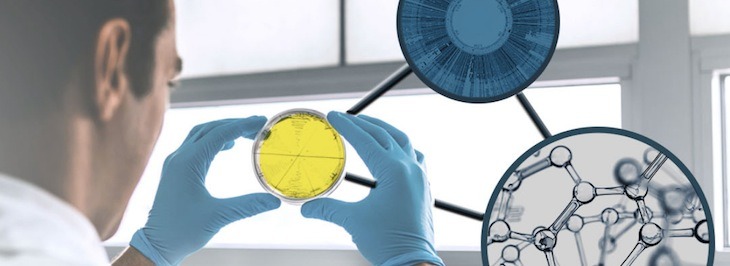National research program coming to Arkansas State University
by January 30, 2019 7:27 pm 310 views

All of Us, an initiative started by the National Institutes of Health to better treat and predict diseases, will come to the Arkansas State University campus Friday (Feb. 1) starting at 10 a.m. Launched in 2016, the goal of the program is to create a 1 million person participant group from across the country, according to NIH. About $130 million is being spent on the project.
Arkansas State University’s College of Nursing and Health Professions and El Centro Hispano in Jonesboro are partnering with the National Alliance for Hispanic Health to host the NIH’s hands-on exhibit that raises awareness about the All of Us research program. The event will be held on the Heritage Plaza Lawn at the Carl R. Reng Student Union.
“Arkansas State University is honored that the National Alliance for Hispanic Health has chosen our campus as an important stop for the All of Us national tour,” Dr. Susan Hanrahan, dean, College of Nursing and Health Professions said. “We are in a region of the country with significant health disparities among various populations. Greater understanding of health differences with a goal of improved health outcomes is valuable for all of us. We are excited to have the exhibit on campus.”
The goal of the project is to study the biological, environmental, and behavioral influences on these diseases to make a difference for the millions of people who suffer from them, according to the NIH. Precision medicine is a new approach for disease prevention and treatment that takes into account individual differences in lifestyle, environment, and biology. While some advances in precision medicine have been made, the practice is not currently in use for most diseases.
The All of Us Research Program is a key element of the Precision Medicine Initiative (PMI). Through advances in research, technology, and policies that empower patients, the PMI will enable a new era of medicine in which researchers, health care providers, and patients work together to develop individualized care, NIH states.
About $70 million was allocated to the National Cancer Institute to lead efforts in cancer genomics as part of PMI for oncology.
Anyone in the U.S. can participate. Those who participate will have access to their information, and information collected will be used for research purposes. The research program will collect and curate health-related data and biospecimens from one million or more individuals who reflect the diversity in the United States; these data and biospecimens will be made broadly available for research uses, according to the participant agreement.
Participants will be invited to share their electronic health records, if any, and answer health-related questionnaires. Some participants may also be invited to undergo physical measurements and provide biospecimens from which genomic information and other biomarkers may be derived through analytics. The selection of participants to these modules will be based on the desire for demographic diversity. The information and biospecimens collected will become a useful resource for current and future researchers to investigate why some people develop certain health conditions while others do not, the agreement states.
“As a biology professor and researcher in the biomedical field, I recognize the growing need to develop effective medical treatments that will address the differences among individuals,” added Dr. Fabricio Medina-Bolivar, professor of metabolic engineering, Department of Biological Sciences. “The opportunity to host the National Alliance for Hispanic Health at Arkansas State University will be of great benefit to our students as they prepare to address important medical challenges in the future.”
